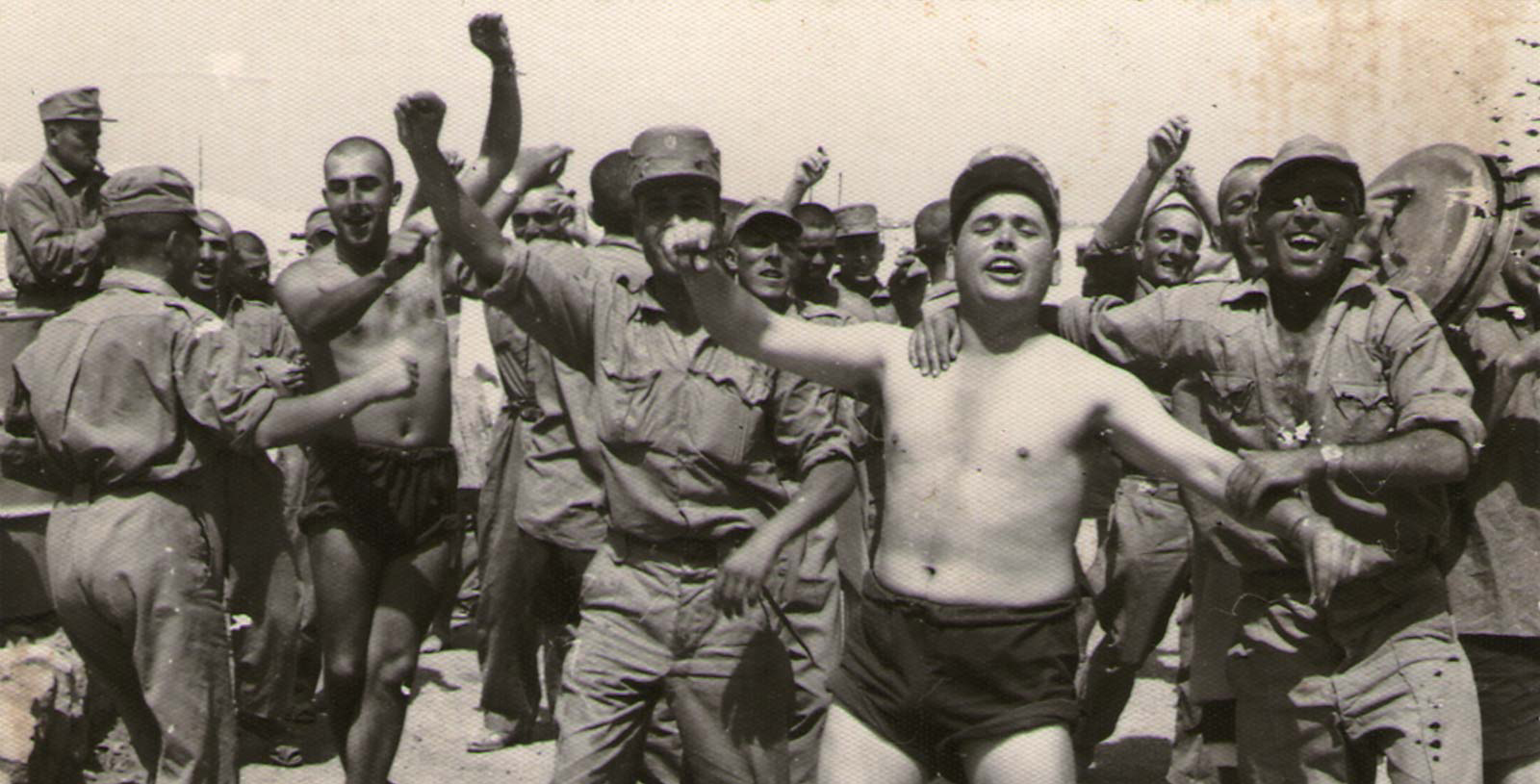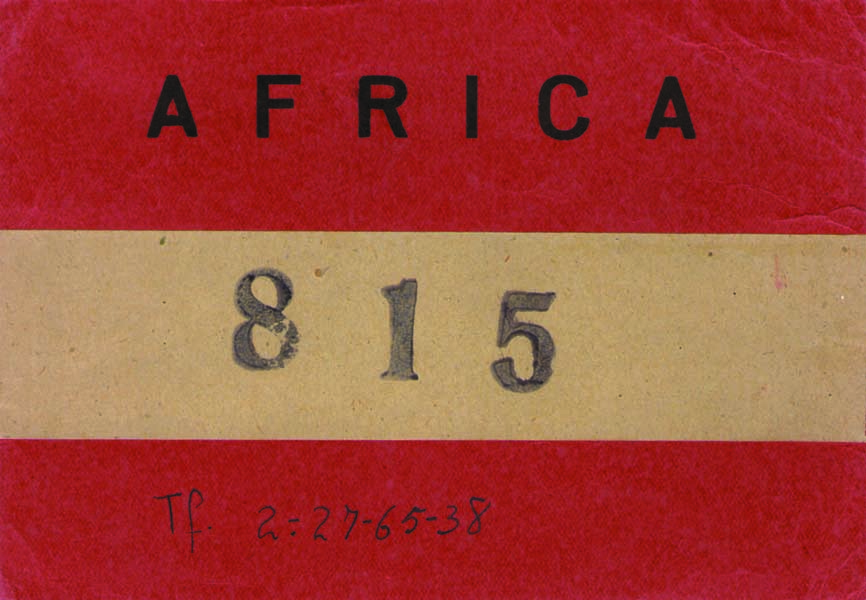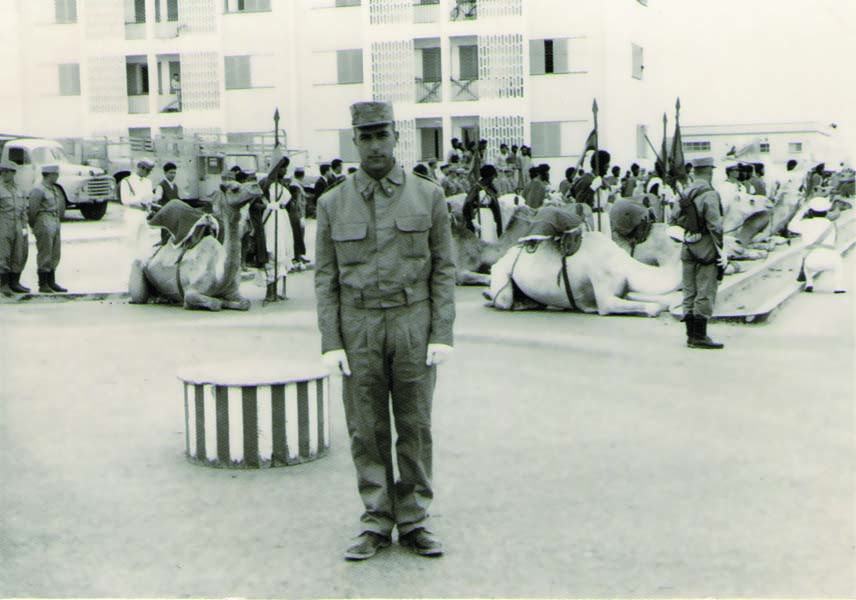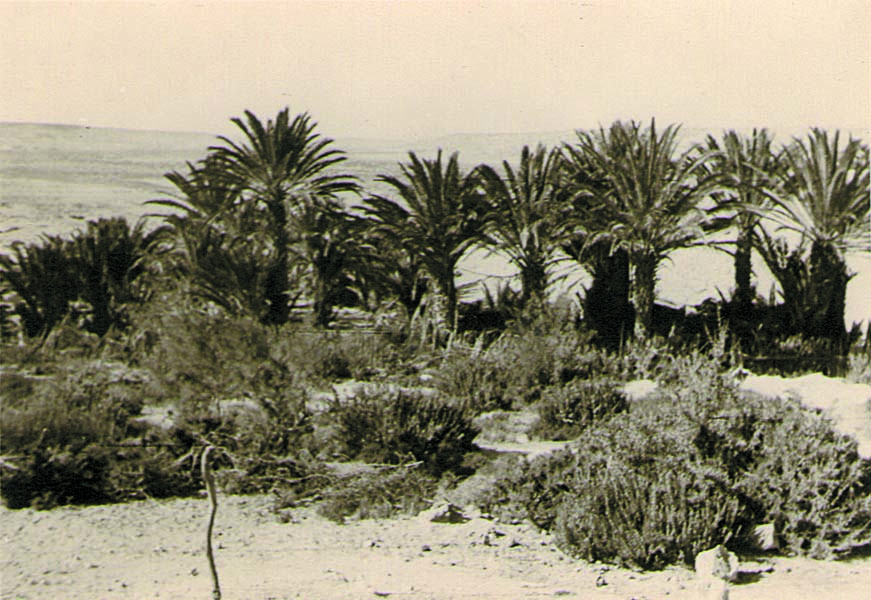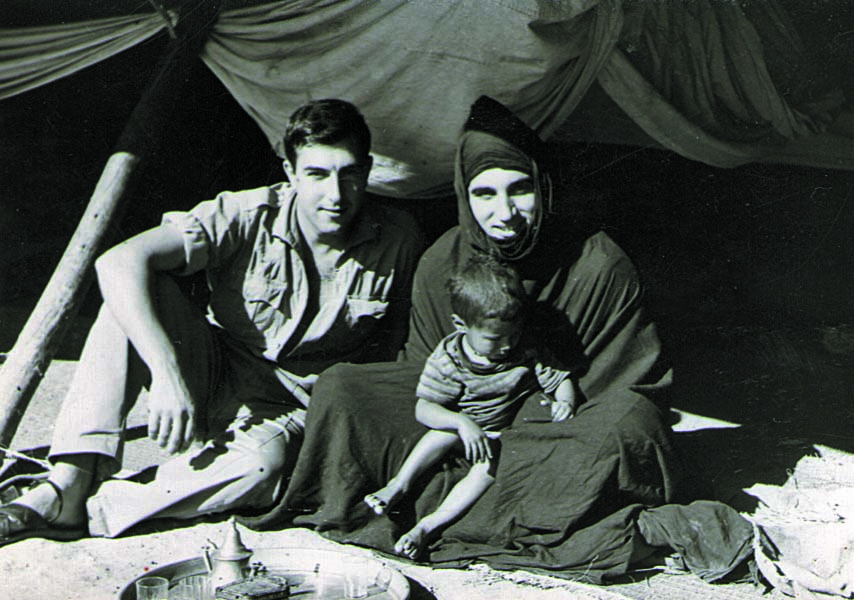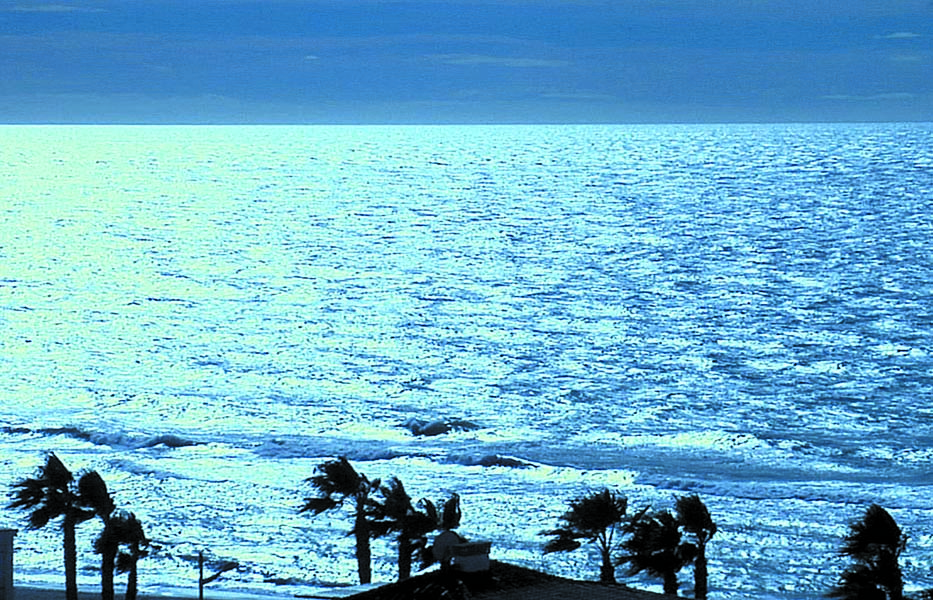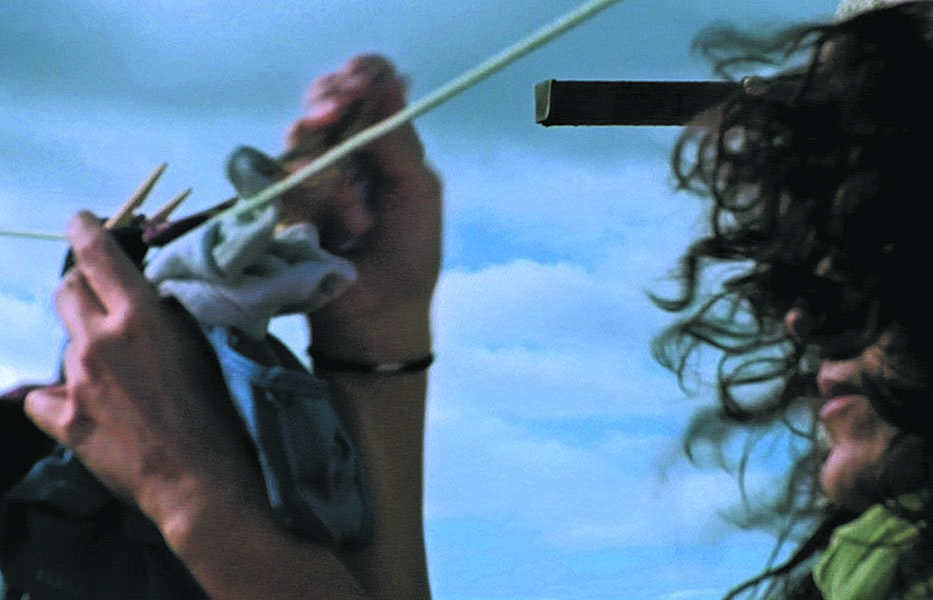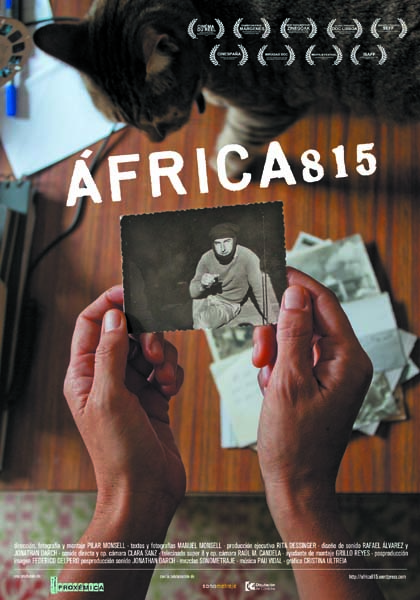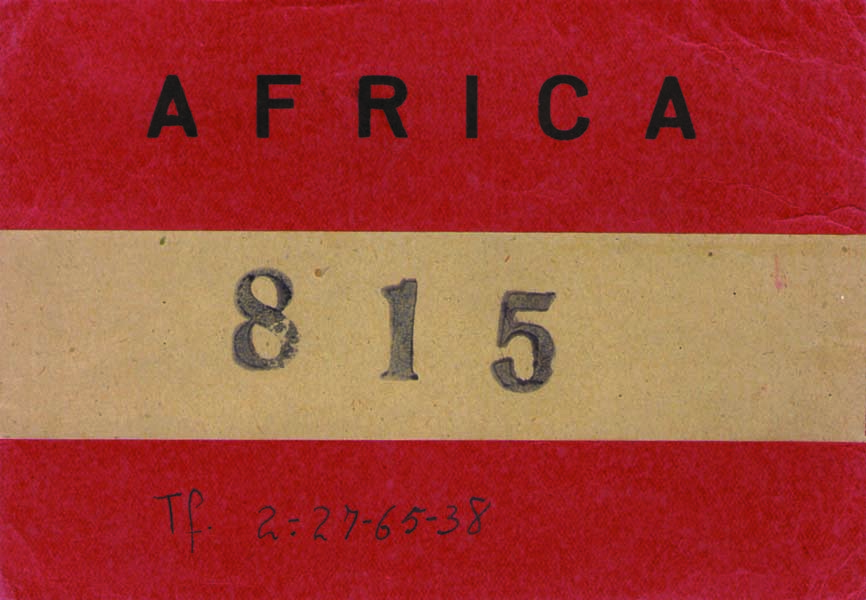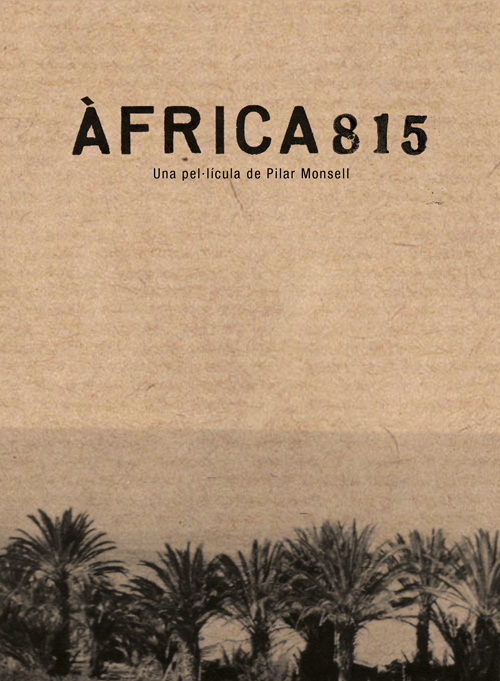África 815. Paradise lost
Pilar Monsell
08.04.2017 – 18.06.2017
Curator: Valentín Roma
Opening: Friday 7th April, 19 h
Pilar Monsell (Cordoba, 1979) has created a film, África 815 – which is part audio-visual diary, part introspective film and part political documentary – based on the photographic archive and written memoirs of her father related to his experience of doing military service in the Spanish colony of the Sahara in 1964. The exhibition presents this film together with the production notebooks and documentary materials that sparked it.
Structured around Africa 815, the first feature film by Pilar Monsell (Cordoba, 1979), this exhibition allows us to explore the internal geography of the film through the recovery of a series of documents related to the process of preparing the movie, its making and the amplification of some of its areas of work.
Among the documents recovered are books containing the memoirs of the film maker’s father. It was her reading of these books that provided the spark for her making the film. There is also a selection of archive photographs that “make visible” the people and places to which the narrations of the protagonists refer and, finally, there are the field diaries that Pilar kept during the writing and shooting of the film. These contain drawings, quotations and references that are, we might say, lines of flight, but also gateways into Africa 815.
In another sense, the installation with its three monitors that rescue discarded rough takes from the film, accompanied by texts that clarify them or expand on them, is a sort of continuation of the voice over -including confessional music- built around home recordings in Super 8, talks between her father and the author about writing, as well as footage of the sea, which is perhaps one of the more substantial ‘characters’ in the film. Finally, the complete film, in its cinematic form, will be presented.
Africa 815 begins with an almost still, or interminable, image in which a boat is seen trying to get back on course while a swimmer splashes about in the immensity of the sea.
A few seconds later, the voice of the narrator says she is about to leave and asks her father a question. He then goes on to explain a story about a dream he had of destruction and search: Barcelona being bombed, a daughter whose whereabouts he is unaware of, a tragedy that this manly voice (a voice that fears no confessions) describes without drama, as if diagnosing the situation, or as if listing the formal features of a landscape.
Between this beginning and the abandonment of the apartment once a family home, now a refuge, perhaps a no man’s land-, we see revealed the perimeters of a biography that is both shared and secluded at the same time. The father’s tale of his past, photographic images that bear witness to his loves and the cities where these relationships developed, volumes of parental memoirs that Pilar Monsell reads over and over again, the author and protagonist together, both embarked on an odyssey to pin down the accuracy of adjectives, verb tenses and grammatical correctness, the two disobeying the silence to name something worth remembering, who knows whether this is all done in order not to lose the experience or to embody it, to conclude it or to heal it.
Marguerite Duras -an ineluctable reference for the film maker- wrote, in The Sea Wall, about the deranged obstinacy of her mother trying to stop the night tides. The sense of injustice that had already seized the woman and, like Moses in the desert, prevented her from communicating by speaking, leaving her to scream at the sea or at no one in particular. In complete contrast, in Africa 815 the voices that echo throughout the film are terribly pleasant, dispassionate.
All lost paradises are also -above all- a homeland built through rebellion and nostalgia; all paradises to come are those lands or those seas where the impossible buffets one with as much force as possible so it can give birth to endless possibilities.




